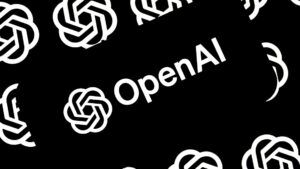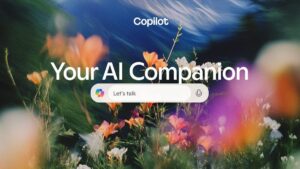Weekly AI Update – March 28, 2025: Highlights on Gemini 2.5, OpenAI’s 4o Image Generation, New Microsoft Reasoning Agents, and More

Key Updates in Artificial Intelligence Development
Artificial intelligence (AI) is evolving rapidly, with software companies continuously integrating new features into their platforms. Keeping up with these advancements can be challenging, especially for developers. Here’s a roundup of some of the latest updates in the AI space that are important for software developers to know.
Google’s Gemini 2.5: A Leap Forward in AI Reasoning
Google recently launched its advanced reasoning model, Gemini 2.5, building upon its predecessor, Gemini 2.0 Flash Thinking. The new version demonstrates enhanced capabilities with improved base models and post-training techniques. With integrated reasoning abilities, Gemini 2.5 can analyze data, draw conclusions, and make informed decisions.
The model, specifically the Gemini 2.5 Pro Experimental, outperforms competitors like OpenAI’s o3-mini and Claude 3.5 Sonnet in LMArena benchmarks. Koray Kavukcuoglu from Google DeepMind described these capabilities as transformative, allowing the model to process information more intelligently.
OpenAI’s 4o Image Generation Model
OpenAI has introduced its innovative 4o Image Generation model, which enhances text rendering capabilities and refines images based on follow-up prompts. This model stands out due to its ability to manage up to 20 different objects within a single instruction, offering significant improvements over previous iterations.
In addition to text-based tasks, this model can learn from user-uploaded images and connect its knowledge across text and images to produce more precise outputs. The rollout of this model is underway, with Plus, Pro, Team, and Free users already able to access the new features.
Microsoft 365 Copilot’s New Reasoning Agents
Microsoft has unveiled two new agents within its Microsoft 365 Copilot: Researcher and Analyst. These agents assist in analyzing vast datasets across various sources, from emails to chat logs.
- Researcher focuses on conducting multi-step research, such as developing marketing strategies that require contextual understanding.
- Analyst specializes in complex data assessments, such as generating sales forecasts based on raw data.
These agents are set to begin their rollout in April as part of the Frontier early access program.
Enhanced Security Features in Microsoft Copilot
Alongside the reasoning agents, Microsoft has also introduced several new agents aimed at bolstering security. Key additions include the Phishing Triage Agent and Alert Triage Agent, designed to help users handle high-volume security tasks seamlessly. These agents aim to improve operational efficiency and strengthen an organization’s security framework.
Features of Red Hat OpenShift AI 2.18
Red Hat’s OpenShift AI 2.18 has released new features that enhance its capabilities in hybrid cloud settings. This version introduces distributed serving, allowing IT teams to share model serving across multiple GPUs, along with improved model tuning and evaluation experiences.
Additionally, it includes a preview of AI Guardrails that help identify and mitigate potentially harmful content, ensuring compliance with corporate policies.
Akamai’s Edge AI Inference Platform
Akamai has launched Akamai Cloud Inference, a platform enabling developers to run AI applications at the edge. This solution is designed to enhance data workload efficiency, significantly improving throughput and reducing latency. It offers various computing options, from traditional CPUs to specialized ASIC chips, facilitating a robust environment for AI tasks.
Open-Sourcing AlexNet
The original AlexNet, a neural network that transformed the landscape of image recognition, is now open-source. Developed in 2012 by researchers from the University of Toronto, AlexNet set a precedent for subsequent advancements in AI. The source code is available via GitHub, inviting new explorations into its capabilities and applications.
This roundup highlights the crucial updates in AI technology that developers should note, as they can influence future projects and enhance operational effectiveness across various software platforms. As the AI landscape continues to evolve, staying informed will be essential for leveraging these advancements.






